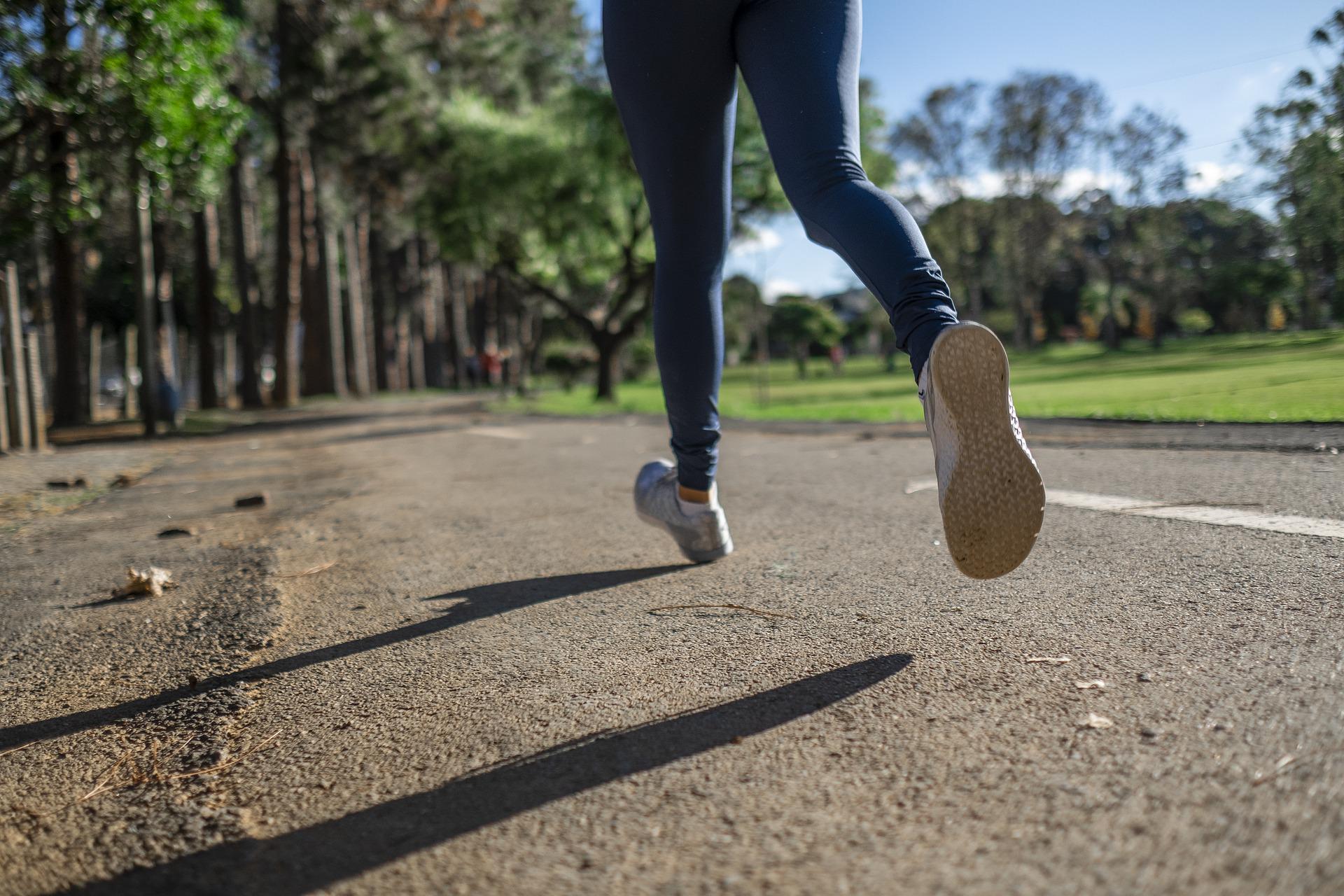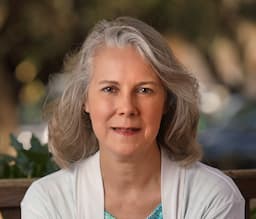Resuming Exercise after COVID-19 Infection - Charlaine Martin

Special note: A friend of mine requested this blog post to help her get back into the swing of exercise after her bout with COVID, but God said, “Wait.” Now that I’m recovering from it, He said, “Do it!” Maybe this information, which should not be regarded as medical advice, may spark questions for you to ask your medical provider before exercising after Covid-19. Links are provided to take you to reliable resources about Covid-19 and its effects on your body.
My Boaz said a couple of weeks ago, “These grapes don’t have much flavor.” He had a bit of a cough and body aches, but we chalked that up to knocking ourselves out to move our belongings to Florida. But when he mentioned that the grapes tasted bland, I tasted one. Those grapes were full of flavor! COVID? Yes. We had a couple of test kits ordered from the U.S. government website. He was positive, and I was negative—until last week. My symptoms were head and chest congestion, body aches, swollen lymph nodes, mouth sores and a sore on my leg, and headache. I’m still dealing with lingering symptoms. When I think I’m doing better and become more active again, I get knocked down the next day. Now I feel like a marshmallow. UGH! I want to exercise and get back to normal, but it will take time and patience. Resuming exercise after Covid-19 isn’t easy.
Have you suffered from COVID-19? You are not alone. According to Harvard Health, tens of thousands” suffer from the long-lasting effects of COVID. This coronavirus came on the scene around two years ago. Many people have been left with lingering effects. Some people get winded with minor activities like walking or taking a laundry basket upstairs. Others feel fatigued and foggy-brained for several weeks to months after the infection is gone. Yet others have concerns about their hearts or blood clots resulting from the effects of this novel virus. Everyone is affected differently.
Know Your Long-term Effects After Covid-19 Infection
It’s essential to know how your body is affected by Covid. What long-term effects will you need to work with as you recover over the next few weeks or months? Some people recover much as if they had the flu. Don’t exercise while you have active COVID. Some people have lingering effects for a few months after the infection is out of their bodies. Yet some people are COVID long-haulers suffering from brain fog, pain, weakness, and overall fatigue for several months afterward.
As you survey the damage, whether short-term or long-term, you can understand better what may limit your exercise. Whatever you do, avoid pushing your body to comply with your desire to become fit in a day or two. Doing so will only aggravate symptoms, nor is it wise to expect such results. Everyone’s effects and responses to exercise will be different. Here are some long-term symptoms and suggestions for beginning exercise:
- Brain Fog. Brain fog affects cognitive skills and decision-making. Be careful about doing any agility training at this time. Stay with predictable movements like walking on a treadmill or track or stationary cycling. Your ability to recognize hazards and deal with them is impaired. I liken this to the brain fog of fibromyalgia and some autoimmune diseases. Simple reps and light weights on machines for strength may prove valuable to get back into the swing of exercise. Do pay attention to your body’s responses. Sometimes, light cardio will help the brain fog clear a little sooner because the blood can get more oxygen to the brain. Strength training helps with the metabolism of nutrients which may help as well.
- Fatigue. Fatigue is the most common symptom I’ve heard. Why you feel fatigued will make a difference in what you can do. Suppose your heart and lungs are still affected. In that case, you could begin with walking and possibly modified bodyweight exercise with your doctor’s approval. Start with short bouts of walking first, for 2-10 minutes. As you feel more energy, you can extend your walk time and increase your speed and intensity. Treat your energy levels like a bank account. If you expend a lot of energy but have a low energy day, you will pay for it in bed for the next couple of days. You can’t borrow from the Energy Bank without paying high-interest rates! Decide after your breakfast and shower what kind of an energy balance you have, with $100 as the perfect day. Figure out how much energy you can spend with exercise compared to daily activities like washing dishes or taking out the trash. You can better handle your daily tasks as you increase your energy levels.
If you have general fatigue that comes and goes, find the best time of day when your energy levels are good. Working out at your peak may drain you fast, but your endurance will build up. Prioritize your time and energy for exercise and other tasks that matter most to you.
- Myocarditis. Inflammation of the heart is a serious issue. Since your heart must work harder during any exercise, DO NOT go against your doctor’s recommendations! You could put yourself at serious risk for a coronary event. But after your doctor clears you for exercise, follow their recommendations strictly. Light walking for short bouts and gradually increasing your time is the best beginning for exercise. After two to four weeks and no complications, try light modified bodyweight or light weights. If your heart bothers you, back off for a few days and carefully try again. Always start with walking before you add strength. Keep all your strength training with light weights no higher than your chest—nothing over your shoulders like overhead press. ALWAYS exhale whenever you exert force on any resistance like pushing, pulling, or lifting weight. Inhale on the release. If you hold your breath, you will put undue stress on your heart (Valsalva Maneuver).
- Inflammation of the lungs. Your lungs likely took the brunt of COVID’s attack. Follow #3 here as well. Focus on breathing during your walk. Start light and slowly increase time, speed, and intensity. After two to four weeks, add light weights and stretch. It’s important to breathe throughout your exercise. Your lungs will gradually increase breath capacity as you improve in your exercise. This is very important for continued recovery.
- Blood clots. Your doctor will likely want to dissolve your blood clots to avoid a stroke or heart attack. DO NOT EXERCISE until your doctor clears you. But when you have been cleared, follow your doctor’s exercise recommendations and restrictions precisely as given. Begin slowly and simply. If you feel pain in your legs, carotid arteries, femoral arteries, or chest, STOP and call your doctor. If you have relentless chest pain or weakness in your face and one side of your body, call 9-1-1! You could have a heart attack or stroke.
Final Thoughts
Please consider any infectious illness by not sharing it with others. Philippians 2:3 says not to do anything out of selfish ambition or vain conceit, but to regard others above yourself. Just as you don’t appreciate being pulled down by illness or losing valuable work time, neither do other people. Protecting the elderly, infants and toddlers, and anyone whose immune system is compromised from illnesses like COVID and the flu is also essential. It could be life or death for them. Whether or not you agree with mask mandates, masks and social distancing while dealing with an active virus prevent spreading it to others.
COVID is likely here to stay, much to our dismay. You could get reinfected with another strain, but following the CDC’s recommendations can help you reduce how often you get COVID. Recovery takes time, and so does beginning exercise again. Put good personal stewardship to work for you by working smart, following your doctor’s recommendations, and paying attention to your body’s cues. Your body is not your own, it was bought by the blood of Jesus Christ ( 1 Corinthians 6:19-20), and we want to be able to do the good works God would want us to do, meaning that being healthy makes it a lot easier (Ephesians 2:10). These tips will help you make greater strides toward normal activity again.
Many blessings to you!












